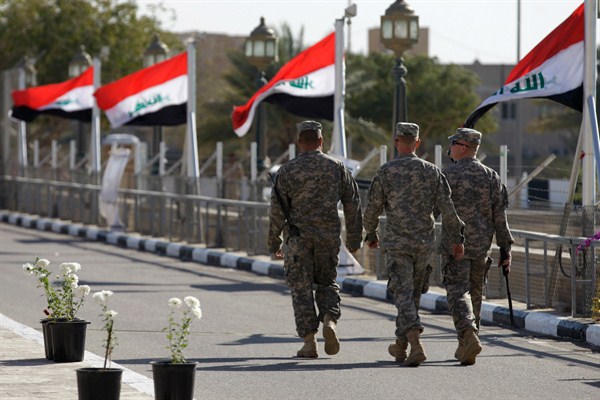The culture of speaking truth to power is alive and well in the United States, despite the toxic environment in which analysts and other truth-tellers in the federal government operate these days. That is the main lesson of an important new history of the Iraq War released last month by the U.S. Army. The study takes on some of the established narratives about the ouster of Saddam Hussein in 2003 and its violent aftermath, while offering refreshingly honest assessments of the performances of both civilian and military leaders.
America’s tragic engagement in Iraq is well-trodden terrain, with formidable and critical in-depth accounts by former military officers and journalists alike. But this new two-volume study was written by active-duty military officers with nearly full access to internal documents and decision-makers. Initiated by the Army’s then-chief of staff, Gen. Ray Odierno, in 2013, the study is characterized as “an interim work by design.” Apparently the final, formal, authoritative history of the war will take many more years to compile, but this first study, comprising nearly 1,500 pages, is a building block. Its co-editors, Col. Joel Rayburn and Col. Frank Sobchak, fashioned it after the “Green Books” produced after World War II as the Army’s official history of that war. These studies are intended to provide the best possible objective record of strategic and operational decisions for a specific military campaign and offer lessons for future commanders, as well as accessible narratives of military action for a wider audience.
Odierno and his successor as Army chief of staff, Gen. Mark Milley, who has been tapped by President Donald Trump to be the next chairman of the Joint Chiefs of Staff, supported the years of research to produce this study for slightly different reasons. Odierno was forward-leaning in identifying powerful lessons from the Iraq War, which he saw as evidence that the fundamental principles of war, including understanding local terrain, cannot be replaced with technology. He was advising his Army colleagues to go back to basics about the conduct of war, including the importance of constantly clarifying U.S. intentions to the host country, a charge that has eluded field commanders in Iraq and Afghanistan, and now Syria.

